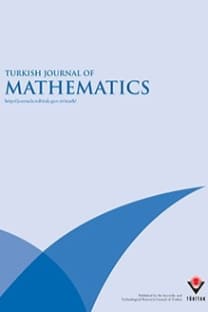A novel 3-pass identification scheme and signature scheme based on multivariate quadratic polynomials
A novel 3-pass identification scheme and signature scheme based on multivariate quadratic polynomials
___
- [1] Abdalla M, An JH, Bellare M and Namprempre C. From identification to signatures via the Fiat-Shamir transform: minimizing assumptions for security and forward-security. Lect Notes Comp Sci 2002; 2332: 418-433.
- [2] Bernstein DJ. Buchmann J, Dahmen E. Post-Quantum Cryptography. Berlin, Germany: Springer, 2009.
- [3] Chen MS, Hülsing A, Rijneveld J, Samardjiska S, Schwabe P. From 5-pass MQ-based identification to MQ-based signatures. In: International Conference on the Theory and Application of Cryptology and Information Security - ASIACRYPT 2016; 4–8 December 2016; Hanoi, Vietnam. Berlin, Germany: Springer, 2016. pp. 135-165.
- [4] Chen MS, Hülsing A, Rijneveld J, Samardjiska S, Schwabe, P. MQDSS specifications version 1.1. In: NIST’s First PQC Standardization Conference; 2018.
- [5] Dagdelen O, Galindo D, Veron P, El Yousfi Alaoui SM, Cayrel PL. Extended security arguments for signature schemes. Design Code Cryptogr 2016; 78: 441-461.
- [6] Feige U, Fiat A, Shamir A. Zero-knowledge proofs of identity. J Cryptol 1988; 1: 77–94.
- [7] Fiat A, Shamir A. How to prove yourself: practical solutions to identification and signature problems. In: Advances in Cryptology — CRYPTO’86; 1987. pp. 186-194.
- [8] Hornschuch M. Multivariate-based identification and signature schemes with additional properties. MSc, Technische Universitat Darmstadt, Germany, 2012.
- [9] Monteiro FS, Goya DH, Terada R. Improved identification protocol based on the MQ problem. IEICE T Fund Electr 2015; E98-A: 1255-1265.
- [10] Okamoto T. Provably secure and practical identification schemes and corresponding signature schemes. Lect Notes Comp Sci 1992; 740: 31-53.
- [11] Sakumoto K. Public-key identification schemes based on multivariate cubic polynomials. Lect Notes Comp Sci 2012; 7293: 172-189.
- [12] Sakumoto K, Shirai T, Hiwatari H. Public-key identification schemes based on multivariate quadratic polynomials. Lect Notes Comp Sci 2011; 6841: 706-723.
- [13] Shor PW. Polynomial-time algorithms for prime factorization and discrete logarithms on a quantum computer. SIAM J Comput 1997; 26: 1484-1509.
- [14] Simari GI. A Primer on Zero Knowledge Protocols. Technical Report. Buenos Aires, Argentina: Universidad Nacional del Sur, 2002.
- ISSN: 1300-0098
- Yayın Aralığı: 6
- Yayıncı: TÜBİTAK
Kernel operators and their boundedness from weighted Sobolev space to weighted Lebesgue space
Aigerim KALYBAY, Ryskul OINAROV
Maha MOHAMMED, LUTFI KALANTAN, HALA ALZUMI
Hamdullah BAŞARAN, Mehmet GÜRDAL, Ayşe Nur GÜNCAN
Aigerim KALYBAY, Ryskul OINAROV
When do quasinilpotents lie in the Jacobson radical?
Hamdullah BAŞARAN, Mehmet GÜRDAL, Ayşe Nur GÜNCAN
Some classes of harmonic mappings with analytic part defined by subordination
Shuhai LI, Ma LI NA, Ao EN, Tang HUO
A Bernstein-type theorem for $\xi$-submanifolds with flat normal bundle in the Euclidean spaces
Xu-yong JİANG, He-jun SUN, PEIBIAO ZHAO
